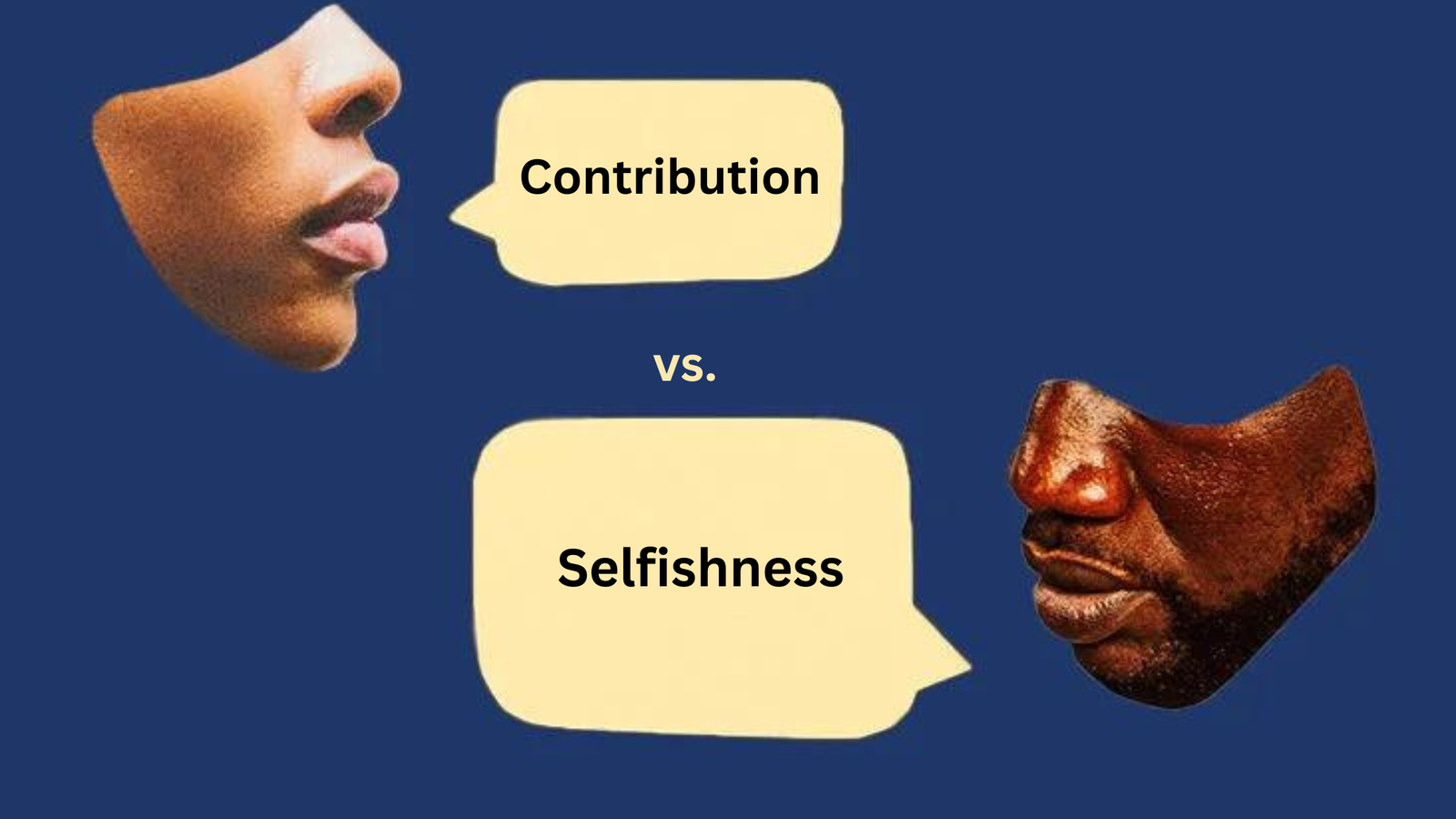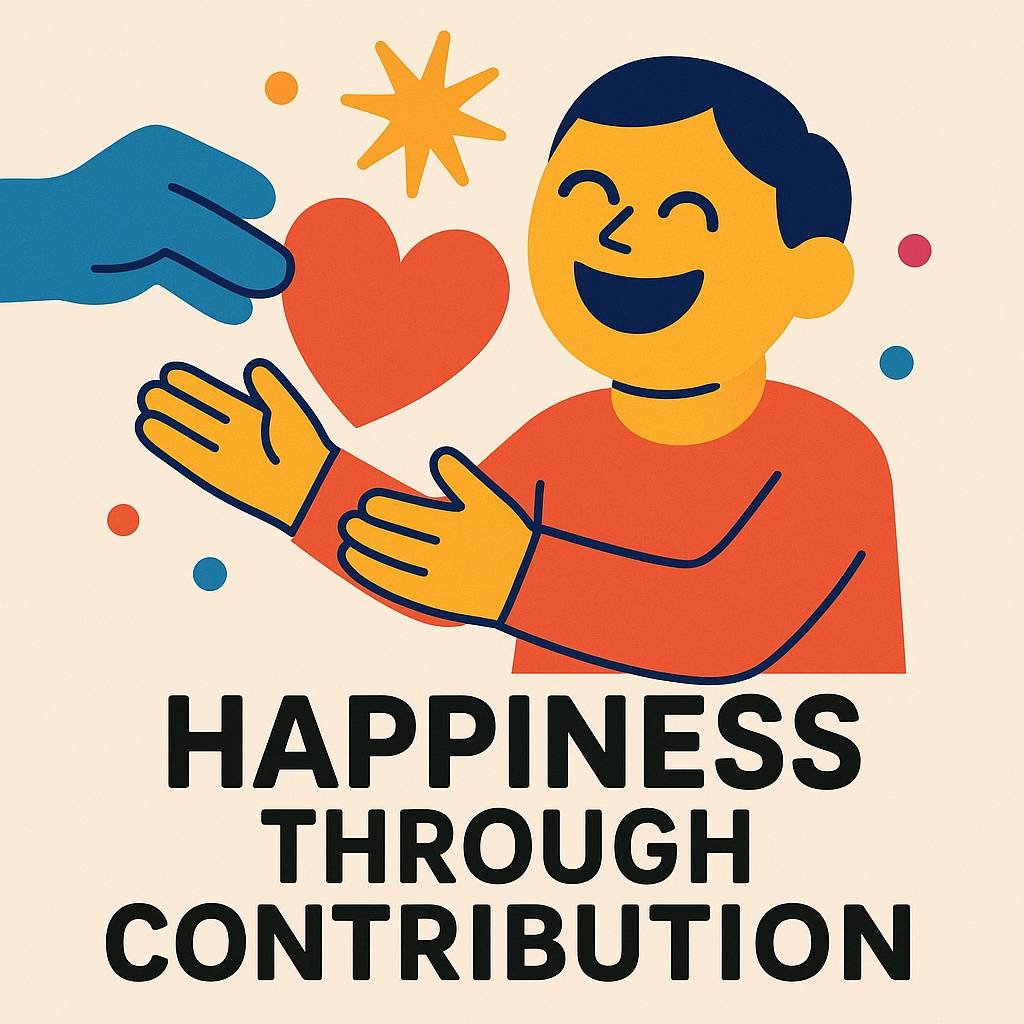Contribution vs. Selfishness: Striking a Balance in Your Life.
In today’s fast-paced and competitive world, the concept of contribution often takes a backseat to individualistic pursuits and self-centeredness. However, finding a balance between contribution and selfishness is crucial for personal growth, relationships, and creating a harmonious society. This article explores the significance of striking this balance and provides insights on how to cultivate a mindset of contribution while avoiding the pitfalls of selfishness.
Understanding Contribution
Contribution refers to the act of giving, sharing, and making a positive impact on others or the world around you. It can take various forms, including donating time, money, skills, or knowledge to a cause or individual in need. Contribution is not limited to grand gestures; even small acts of kindness and generosity hold value.
The Benefits of Contribution
Contributing to the well-being of others and the community offers numerous benefits, both for individuals and society as a whole. Firstly, contribution fosters a sense of purpose and fulfillment. When we engage in acts of giving, we experience a deep sense of satisfaction and meaning in our lives, knowing that we have made a positive difference.
Moreover, contribution strengthens relationships. By offering support, compassion, and assistance to others, we build strong connections based on trust, empathy, and mutual respect. These bonds enhance our social support network and contribute to our own emotional well-being.
Contributing to the betterment of society also leads to personal growth. It broadens our perspectives, exposes us to different realities, and develops our empathy and understanding. Through contribution, we can learn new skills, gain valuable experiences, and expand our knowledge, which can be applied to various aspects of our lives.
The Pitfalls of Selfishness
On the other end of the spectrum lies selfishness, which can be detrimental to both individuals and society. Selfishness is characterized by a focus on personal gain, often at the expense of others. It leads to a sense of entitlement, disregard for the needs and feelings of others, and a lack of empathy.
While self-care and pursuing personal goals are important, an excessive focus on self can lead to isolation, dissatisfaction, and strained relationships. Selfishness breeds a culture of competition, mistrust, and inequality, hindering social progress and cooperation.
Striking the Balance
Finding the balance between contribution and selfishness requires introspection, awareness, and conscious effort. Here are some strategies to help you strike this balance in your life:
1. Cultivate Empathy: Practice putting yourself in others’ shoes, seeking to understand their experiences, needs, and challenges. Empathy forms the foundation for genuine contribution by fostering connection and compassion.
2. Practice Gratitude: Develop a gratitude mindset by acknowledging the blessings in your life. Gratitude opens your heart and encourages a spirit of giving and appreciation.
3. Discover Your Passions: Identify causes, activities, or areas where you can make a meaningful contribution aligned with your interests and talents. When you contribute in areas you are passionate about, it becomes a fulfilling and sustainable practice.
4. Start Small: Contribution doesn’t always have to be grandiose. Start by incorporating small acts of kindness and generosity into your daily life. Offer a listening ear to someone in need, volunteer your time, or donate to a local charity. Small actions can have a significant impact.
5. Set Boundaries: While the contribution is important, it’s equally crucial to establish healthy boundaries. Avoid overextending yourself and prioritize self-care to prevent burnout. Remember that you can contribute effectively only when you’re emotionally and physically well.
6. Lead by Example: Be a role model for others by demonstrating a balanced approach to contribution and self-care. Your actions can inspire and encourage those around you to find their own balance.
In conclusion
Striking a balance between contribution and selfishness is vital for personal and societal growth. Cultivating empathy, gratitude, and self-awareness can help individuals avoid the pitfalls of selfishness and embrace a mindset of giving. Small acts of kindness and generosity can make a significant impact, and setting healthy boundaries and prioritizing self-care are equally important. By finding this balance, we can build strong relationships, foster social progress, and create a more harmonious world. Let’s strive to make meaningful contributions while taking care of ourselves and those around us.







